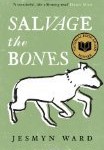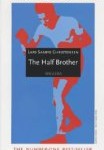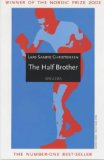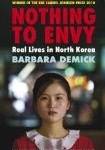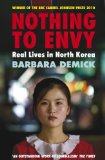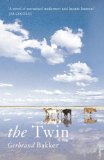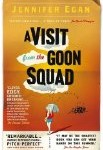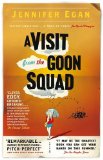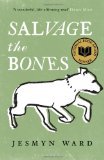 Winner of 2011 National Book Award
Winner of 2011 National Book Award
Five words from the blurb: hurricane, threatening, family, pregnant, pit bull
When the Orange longlist was announced last week several people voiced their surprise that Salvage the Bones was missing. Intrigued by their passion I decided to give it a try and having read it, I agree. This book stands head and shoulders above everything else published this year. It deserved to win the Orange prize and I’m disappointed that it didn’t even make the longlist.
Salvage the Bones is set in Mississippi and follows one family as they prepare for the arrival of Hurricane Katrina. The unconventional and potentially unlovable family are the owners of a prize pit bull, renowned for her fighting skills. At the start of the book she gives birth to a litter of valuable puppies that they attempt to protect as the hurricane approaches.
I worried that I might be subjected to endless descriptions of wind and destruction, but this book is very cleverly structured. The hurricane hits in the final few pages and the power is in what is left unsaid. The details of the destruction are brief, but their lightness still manages to convey the devastation.
The hurricane laughed. A tree, plucked from its branches, hopped across the yard and landed against Daddy’s truck with a crunch, stopped short like it had won a game of hopscotch without stepping out of the lines. The sky was so close I felt like I could reach up and bury my arm in it.
One of the most impressive things about this book was that it made me care about a family who take part in dog fighting. It takes great skill for an author to enable me to connect with people I’d normally abhor, but somehow Jesmyn Ward made me to see past their cruelty and I connected with them on an emotional level.
The atmosphere in the book was perfect. The dialogue gave a fantastic sense of place and the descriptions were vivid throughout:
“We ain’t going nowhere.” Skeetah unlashes his arms and they come whipping out from his sides, and his voice is loud, and he’s like those little firecrackers we get on the Fourth of July that throw out sparks from all sides and jump in bright acid leaps across the hard dirt yard.
This isn’t a happy book. It is a powerful insight into the lives of a family who had numerous problems before the arrival of a hurricane. The ending left me wondering how they’d cope once the waters receded and, given the news articles I’ve seen, I can only imagine the horrors a sequel would contain. I’m sure I’ll remember the characters in this book for a long time to come.
Highly recommended to anyone who enjoys emotionally powerful insights into the lives of other people.

,
The thoughts of other bloggers:
…stunning, beautiful, tragic, heartbreaking, and wholly absorbing. Caribousmom
There is abusive sex and there is violence. At times I wanted to stop reading but found I could not. Page247
This novel absolutely broke my heart, but at the same time I can’t help but recommend that you read it too. Book Addiction
I also recommend listening to this NPR interview with Jesmyn Ward
(Thanks to Caribousmom for drawing it to my attention)
